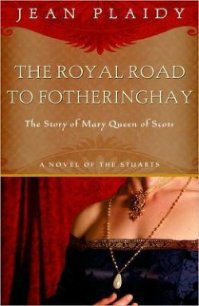The Lion of Justice - Plaidy Jean (книги без регистрации полные версии .txt) 📗
‘You’ll be all right. He will love you dearly.’
‘I don’t want him to. I don’t want him. I want to stay here.’
‘You will be a great Empress, Matilda.’
She brightened a little at the thought, but only momentarily. ‘Oh, Stephen,’ she said, ‘I wish...’
‘I wish it too,’ he told her.
‘I wouldn’t mind not being an empress...I wouldn’t mind anything...’
‘We have to marry those who are chosen for us, Matilda. It happens to us all.’
‘Perhaps...’
Speculation shone in her eyes. She did have the wildest fancies. Somewhere in her mind was the thought that she, Matilda, could do anything she wished simply because she was Matilda.
Stephen was not like that. Stephen was lazy; he would do nothing to offend the King because he feared that if he did he would be sent back to Blois and that was the very last thing that must happen. Perhaps she liked Stephen so much because he was so different from herself.
Stephen said: ‘I shall think of you all the time.’
She nodded. That must be her consolation.
* * * * *
There was little time for grieving. The ceremonies to entertain the embassy occupied all her time. She must be presented to this one and that and she was aware of the new respect with which she was treated and this gave a little balm to her feelings.
If only she could stop thinking of Stephen, and how beautiful he was, how young and amusing. And the Emperor was forty years older than she was. That made him fifty-two! He was a very old man...older than her mother and father.
Bishop Burchard of Cambrai, in whose charge she was to be put, was very stern although, like all the others, respectful. He told her that she would continue with her education in Germany after her marriage. The Emperor wished her to speak German so she would have to work hard at that, for everyone around her would be speaking German. She would learn to live like a German, to be a. German.
She felt angry and resentful. She was English she wanted to say, and so she would remain, but she merely regarded the Bishop haughtily and replied that she would do what she judged to be her duty.
Her father sent for her that he might make her fully aware of the importance of what was happening to her.
‘My daughter,’ he said, ‘you are fortunate indeed. This is a great match and you are doubly blessed, for you will be an Empress, the wife of a great ruler, and you will bring great good to your country. Never forget that you are English and that it is your duty to make sure that you bring good to me and your family. Never forget that.’
‘I shall not forget,’ said Matilda.
‘You are a good brave girl,’ he said.
Her lips trembled slightly as he embraced her.
‘I’m proud of you, Matilda,’ he went on; he left her, for he did not wish to know that she was apprehensive. It disturbed him. Poor child, she was only twelve years old. He was thinking that she had always been self-reliant. Once she had children, if she did, all would be well, as long as she remembered her allegiance to her father’s kingdom.
It was different with her mother. The Queen was gentle, remembering that this was the little baby who had filled her with tenderness when she was born, and had continued to do so until Matilda had shown herself to be in no need of tenderness, and was indeed a little impatient with it. Matilda had always wanted admiration beyond all else.
But now the child looked a little forlorn. It was a long way to go from home to a strange land and a husband whom she had never seen. She would know nothing of what marriage entailed. The Queen thought of herself at that age and did not know that Matilda was unlike her and not entirely ignorant as her mother had been at that age.
‘My dearest daughter.’ said the Queen, drawing the girl into her arms, ‘you are going far from us and we shall miss you sorely. But you will have a husband to care for you. You must love him dearly. You must promise me to do so.’
‘How can I until I know I can?’
‘You must strive for this.’
‘My lady, can one strive to love?’
‘One can strive to do one’s duty.’
Matilda said suddenly: ‘I don’t want to go.’
‘My child, this happens to Princesses. They must leave their homes. They must marry where it will do good to their families. It happens to many of us.’
‘It did not happen to you.’
‘No.’ The Queen smiled thinking of Henry’s coming to the Abbey. How wonderful he had seemed, a shining hero coming to rescue her from the harshness of her Aunt Christina. And it had not turned out quite as she had hoped. The chivalrous knight had turned out to be a lecher, a man who, while he was courting her, was living in intimacy with another woman, perhaps several, so that she was never surprised when some new young man or woman was brought to Court and she discovered him or her to be yet another of her husband’s bastards. ‘Your father came and courted me and I loved him before I married him. Love will come to you after marriage.’
Matilda said nothing.
She was thinking of Stephen, for as the day of her departure drew nearer she thought more and more of Stephen. He was always in her company; they both knew that they wished to see as much as possible of each other for when she went to Germany and he may be followed his uncle to Normandy, they would have only memories of each other.
The last day came.
Matilda was dressed in a kirtle of blue, edged with gold embroidery; the little cap on her head was covered in precious stones and her long hair fell under it in two long plaits. She looked very handsome and slightly older than her twelve years. There was a faint colour in her cheeks because in spite of the fact that she was about to leave her home she was the centre of attraction and that had always meant a great deal to Matilda.
Down to the coast she travelled with her parents and the members of the embassy from Germany. Stephen was of the party, and he was never far from her side.
Sadly he watched her and Matilda thought often of how different it would have been if instead of being her poor cousin he had been a great king.
Her parents bade her a tender farewell; she boarded the ship which was to take her to her new life. She was the centre of all attention, for all this pomp had been devised for her.
She stood on deck watching the last of England fade away.
Somewhere on the shore which would soon fade from her sight was her dearest cousin Stephen, but he was not meant for her. She turned her face from the white cliffs and looked out to sea.
She must put away childish romantic dreams and begin to think of her new role of Empress.
The Passing of the Queen
The Queen’s sister Mary came to Court. Matilda was delighted to see her as always, for they still both enjoyed talking of the old days under Aunt Christina and congratulating themselves on their escape.
‘Although,’ Mary admitted, ‘it wasn’t quite as wonderful as I used to think it would be when as a prisoner in the Abbey I dreamed of love and marriage; and I know it was not for you either, Edith.’
‘How it takes me back to those days to be called Edith. No one calls me that now except you.’
‘If I called you Matilda I should confuse you with my daughter and yours. It is my daughter I want to talk to you about, Edith.’
‘How fares she in the Abbey of Bermondsey?’
‘Very well indeed, I think. Her lot is different from ours. As you know I visit her when I am here and I make an opportunity of coming whenever I can.’
‘So you do not mind leaving Eustace?’
Mary grimaced. ‘Eustace is always concerned with planning a crusade and then going on it and planning another. I believe he has led such a sinful life that he has much to be forgiven and he thinks this is the way of washing his sins away.’
Matilda said: ‘Oh Mary!’ in shocked tones, which made Mary laugh.




